What is Life Insurance: Meaning, History, Types and Benefits
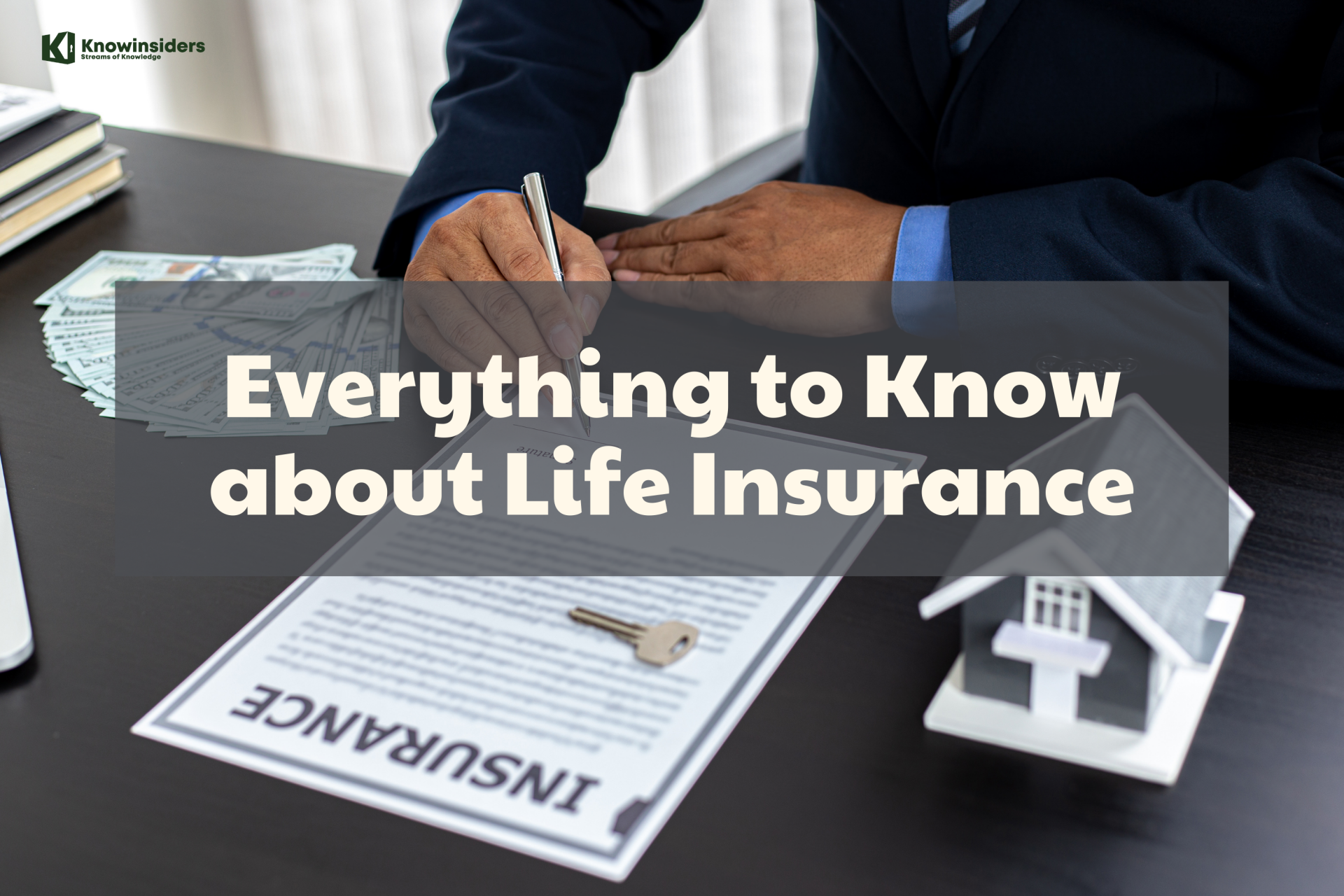 Life Insurance: Purposes, Types, Benefits and Cost Life Insurance: Purposes, Types, Benefits and Cost |
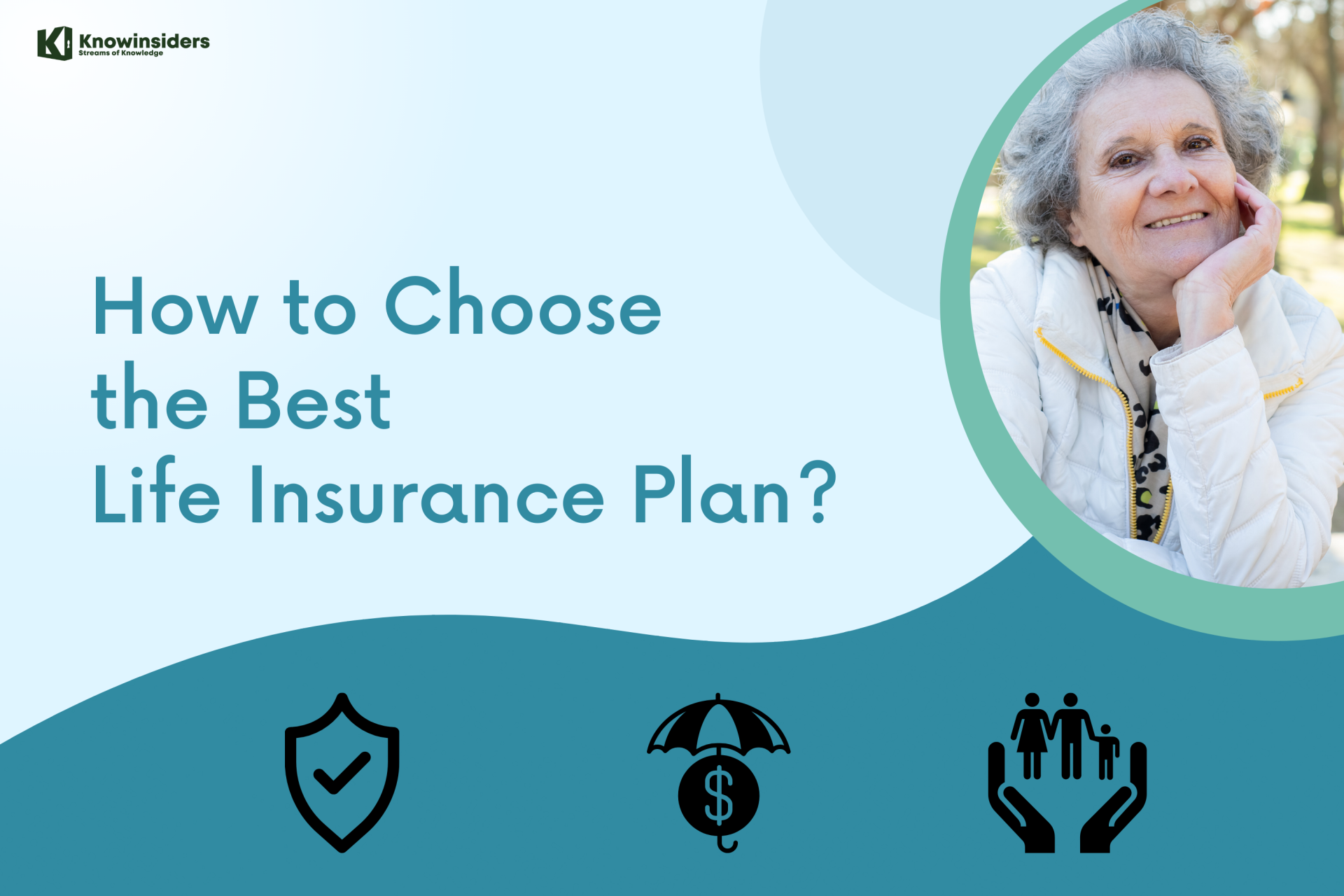 The Best Ways to Select the Right Life Insurance Plan and Company The Best Ways to Select the Right Life Insurance Plan and Company |
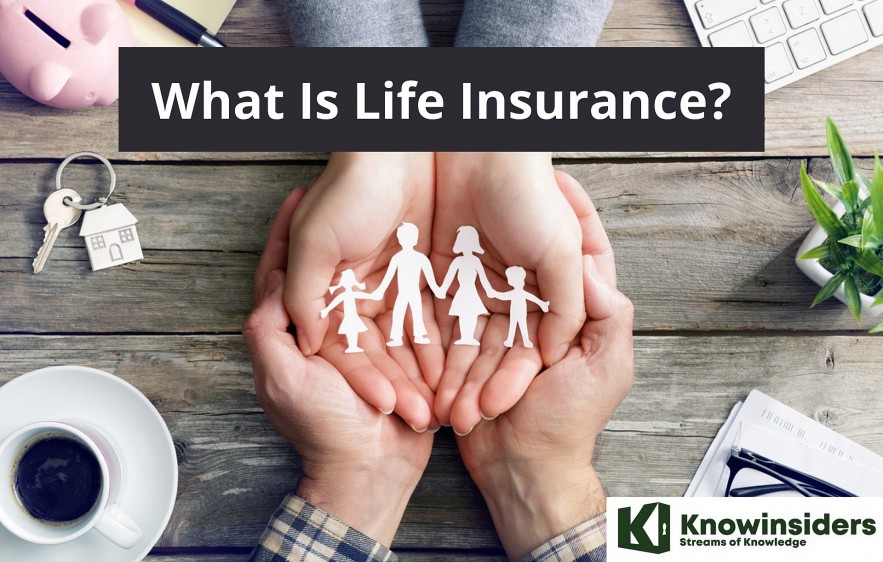 |
| Life Insurance |
| Contents |
Life is fascinating, but also fraught with peril. No matter how clever or diligent you are, you can never predict what the future will bring.
You are not alone if you haven't gotten around to it yet. Among American adults, 61% do not have any form of life insurance. A life insurance policy may already be on your radar. Or maybe not; life is hectic in and of itself. It's important to understand how life insurance works in case you pass away and leave behind dependents who rely on your income. F
ind out more about life insurance, including how it operates, how much it typically costs, and the various options available to you.
What Is Life Insurance - Definition & Meaning
You and the insurance company enter into a legally binding agreement called a policy when you purchase life insurance. Purchasing a life insurance policy requires that you pay the insurance provider a regular premium. In return, the business will provide your heirs with a death benefit. Insurance against death in various forms, including natural causes, accidents, and even illness and injury while you're still alive is available through various policies sold as part of the industry.
Two main categories of life insurance exist.
In both the short and long term, permanent life insurance is available. Term life insurance protects you for a predetermined time period, while permanent life insurance follows you until the end of your life.
Term life insurance policies are typically more cost-effective than their permanent counterparts. Permanent life insurance, such as whole life insurance, does not lapse as long as premiums are paid and the policyholder remains alive and in good health. If you outlive the term of your policy, you will receive nothing.
Life insurance, also called life cover or life assurance, is a policy that provides financial security to a policyholder's dependents in the event of the policyholder's death. It can give your loved ones financial security and peace of mind in the event of your untimely passing.
If you pass away while your policy is active, your beneficiaries will receive a cash payout from your life insurance policy. It can ease their financial burdens associated with things like rent, utilities, and groceries.
A life insurance policy is a type of financial protection that guarantees a specified payout to the policyholder or their beneficiaries either at the end of a specified period of time or upon the policyholder's death.
But if you really want to get a handle on what "life insurance" means and why it's so important, think of it as a safety net in case something unexpected happens to you. Having life insurance means you are financially ready for anything. It guarantees that you and your loved ones will be provided for monetarily in the event that you lose your job (maybe due to an accident, retirement, or untimely demise).
An insurance policyholder (the "insured") and an insurer (the "insurer") enter into a legally binding agreement known as a "life insurance policy" (insurer). The insurer agrees to pay the beneficiary a specified amount (the "Sum Assured" or "Cover Amount") upon the insured's death or at the end of the contract's term, whichever comes first.
What is a life insurance policy, and what are its key features?
The contract between a client and a life insurance provider is known as a "life insurance policy" (or legal entity). It's important to remember that every state has its own set of rules when it comes to life insurance. The following are typically listed in insurance policies:
When it comes to life insurance, only a select few companies are authorized to sell policies by individual states' insurance departments.
Whoever owns (or "holds") an insurance policy is referred to as the policyholder. The policyholder or another party of their choosing can be insured under the policy.
The insured is the policyholder or the insured person.
Death benefit refers to the sum an insurer will pay out if an insured person dies.
Persons or organizations designated to receive a payout after a person's death are called beneficiaries. It can be left entirely to one person (such as a surviving spouse) or divided among many individuals and organizations (such as three children receiving 30% each and a charity receiving 10%).
Time frame during which a policy's death benefit is guaranteed by the insurance company. This can be for a set period of time (say, 10 or 20 years), or it can be permanent (lasting as long as the insured person continues to pay premiums).
The premium is the regular payment (usually periodic, but sometimes annual) required to keep the policy in force.
Value in dollars: Permanent life insurance, such as whole life insurance, includes a cash value component that grows over time2 and can be withdrawn in the form of a payout or borrowed against in the form of a loan. 3 No savings are involved with a term policy.
Why is life insurance important?
Most Americans don't have three months' worth of savings set aside, much less enough to provide for their families' needs for many years. With life insurance, your loved ones can be safeguarded even if you don't have a million dollars in the bank. For as little as $20 to $30 a month, life insurance provides a safety net to make sure your loved ones aren't in financial straits when you pass away.
Life insurance, in particular, is not something you want to leave to chance. Since death and taxes are the only two things you can count on in life, it's smart to get covered for the inevitable early on.
How does life insurance work?
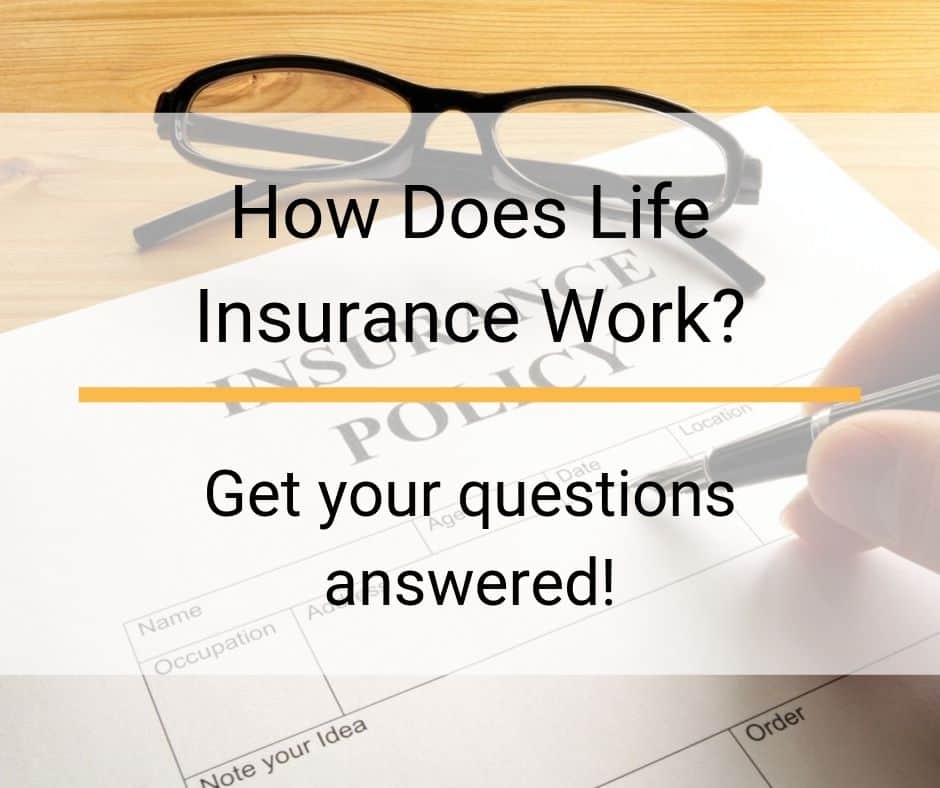 |
| Photo: financialmentor |
Any sound financial strategy must include life insurance. If you want to find a policy that will give you and your family the protection you need at an affordable price, you need to be aware of the details of the various options out there.
Here’s what you need to know to get started:
When you buy a policy
There is a chain of choices that must be made when purchasing insurance: the type of policy, the amount of coverage, the length of coverage, etc. To that end, it serves as a binding agreement between you and the insurer. The insurance policy you choose will determine the company's approach to providing customer service. Does it matter to you that your insurance policy only covers you for a specific time frame? Do you wish to receive further advantages? Would you like to supplement your income during the time you are insured?
What you choose as your "life cover" is the amount that your insurance provider has agreed to pay out to your beneficiaries in the event of your untimely demise. This choice requires careful consideration of many factors, including your current way of life, income, savings, and debt levels.
Here, timing is of the essence. There is a time limit on the insurance's effectiveness. There are plans that cover you for the rest of your life, and others that only cover you for a specific number of years. If your situation lasts longer than the policy's time limit, you likely won't be able to collect.
Paying premium
The premiums for a given insurance plan must be paid on a regular basis. Insurance premium describes this payment. Please think of this as the premium you're paying to the insurance company for the privilege of having life insurance. This sum must be paid annually for as long as the policy remains in force. As an illustration, if you purchase a 20-year term plan, you'll be responsible for a certain annual premium for the duration of your policy. The premium you pay is based on factors such as the policy you select, the amount of life coverage you need, your age, and your health.
How is the premium decided?
Insurers will conduct Underwriting before deciding whether or not to cover you. To do this, they must weigh the benefits they will receive from covering you against the costs they will incur. A completed application and medical exam (or at least a questionnaire) are necessary steps in this direction. You may be required to pay a higher premium to account for the risk you pose to the insurance company if it is determined that you have a greater risk of developing chronic illnesses or that you work in a high-risk occupation. However, your company's insurer may forego the underwriting process if you obtain insurance through them.
Claiming your money
In case of an untimely death, the insurance company will pay you the entire coverage amount. This is why it becomes essential to choose the duration of the policy very carefully and to buy cover as soon as possible.
What life insurance covers
Different life insurance products are designed to protect you from different events that can occur:
life cover — pays a lump sum when you die
total and permanent disability (TPD) insurance — pays a lump sum to help with rehabilitation and living costs
trauma insurance — covers you if you’re diagnosed with a major illness
income protection insurance — pays some of your income if you can’t work due to illness or injury
A Brief History of Life InsuranceThe first known American life insurance policy was issued in the 1760s, so the practice has been around for quite some time. 1 In time, the market shifted so that only the two most fundamental types — term life, which provides protection for a set time period, and permanent, which provides protection for the rest of your life — were available. However, just because both are common does not mean they are equally beneficial. How do they all function? Let's take a look! |
Frequently asked questions about life insuranceWhat does life insurance cost? Whether you choose a term or permanent policy, as well as your age, weight, health, gender, lifestyle, occupation, and risk factors like smoking, can all have a significant impact on how much you pay for a given death benefit. How can a life insurance policy be tailored to my needs? Almost all types of life insurance policies allow you to add on supplemental coverage, or "riders," that can be specifically tailored to your situation. 12 By covering the costs of long-term care and funeral expenses while the insured is still alive, the riders available through Guardian can be an important tool in safeguarding a family's financial security. Can I buy a policy that lets me increase my coverage later on? Yes, with a benefit increase rider attached to your permanent life insurance policy, you can increase the death benefit at predetermined time intervals (say, every three years) without undergoing a medical exam or providing any additional proof of insurability. Is life insurance only for people with children? One of the more common triggers for people to consider purchasing life insurance is when they become responsible for raising a child. Actually, if not to safeguard loved ones, what is the point of life insurance? But that's not the only thing to consider when shopping for insurance. You should get life insurance if your partner can't afford to keep the house if you die and they help you pay the bills. The death benefit from our life insurance policy could be used to help pay off an interest-only mortgage. It could also be put toward meeting the basic needs of your family. Instead, we offer Decreasing Life Insurance to safeguard a mortgage repayment plan, with coverage that gradually decreases over time. Keep in mind that unless a valid claim is made, life insurance has no cash value and should not be treated as such. |
 10 Best Life Insurance Companies In The World 10 Best Life Insurance Companies In The World If you are wondering about the best life insurance companies to protect your family, here is the list of the top 10 best life insurance ... |
What are the benefits of Life Insurance?
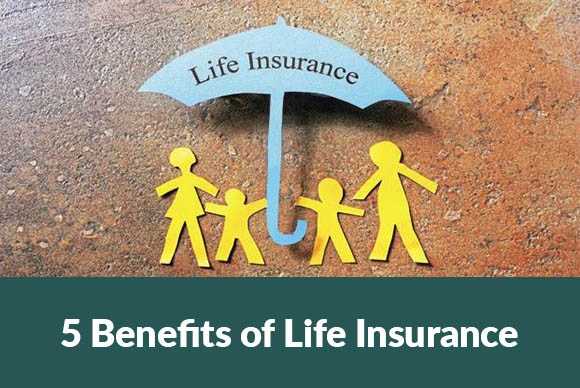 |
| Photo: keyanfintech |
Life insurance provides a number of useful benefits. Among them:
1. Life Insurance Payouts Are Tax-Free
If you have a life insurance policy and die while your coverage is in effect, your beneficiaries will receive a lump sum death benefit. Life insurance payouts aren’t considered income for tax purposes, and your beneficiaries don’t have to report the money when they file their tax returns.3
2. Your Dependents Won’t Have to Worry About Living Expenses
Many experts recommend having life insurance that's equal to seven to 10 times your annual income. If you have a policy (or policies) of that size, the people who depend on your income shouldn't have to worry about their living expenses or other major costs. For example, your insurance policy could cover the cost of your children's college education, and they won’t need to take out student loans.
3. Life Insurance Can Cover Final Expenses
The national median cost of a funeral that included viewing and a burial was $7,640 as of 2019.4 Because many Americans do not have enough savings to cover even a $400 emergency expense, having to pay for a funeral can be a substantial financial burden.5 If you have a life insurance policy, your beneficiaries can use the money to pay for your burial expenses without having to dip into their own savings or use credit.
Some insurers offer final expense policies. These policies have low coverage amounts and relatively inexpensive monthly premiums.
4. You Can Get Coverage for Chronic and Terminal Illnesses
Many life insurance companies offer endorsements, also known as riders, that you can add to your policy to enhance or adjust your coverage. An accelerated benefits rider allows you to access some or all of your death benefits under certain circumstances. Under some policies, for example, if you are diagnosed with a terminal illness and are expected to live less than 12 months, you can use your death benefit while you’re still living to pay for your care or other expenses.
5. Policies Can Supplement Your Retirement Savings
If you purchase a whole, universal, or variable life insurance policy, it can accumulate cash value in addition to providing death benefits. As the cash value builds up over time, you can use it to cover expenses, such as buying a car or making a down payment on a home. You can also tap into it if you need to during your retirement years.
However, a life insurance policy should not replace traditional retirement accounts like a 401(k) or an IRA. What's more, cash value life insurance is considerably more expensive than term life insurance, which has no savings component but simply a death benefit.
How to Choose a Life Insurance Policy Type
With all of the life insurance options available, it may seem complicated to choose the right one.
Start by deciding between term life and permanent life insurance.
Consider a term life insurance policy if you need life insurance for a specific amount of time. For instance, if you want insurance to cover your working years as possible “income replacement” if you were no longer around.
Term life insurance is also a good choice if your budget is limited. Since term life insurance provides protection for a specific amount of time, and it’s not a cash value life insurance policy, the rates will be lower than permanent life insurance.
As you enter different stages of life, your life insurance needs may change. Many term life insurance policies are convertible to permanent policies. The options will depend on your policy and insurer. Term life conversion allows you to switch to a permanent policy without re-applying or taking a life insurance medical exam.
On the other hand, a permanent life insurance policy will last for the duration of your life. If building cash value is important to you, look at permanent life insurance options. But if you’re purchasing a permanent policy only to capitalize on the cash value accumulation, depending on the policy, you’re better off putting your money into a savings or investment vehicle, so you’re not paying for the life insurance and charges within a permanent policy.
And cash value isn’t typically intended for beneficiaries. Upon death, any cash value generally reverts back to the life insurance company. Your beneficiaries get the policy’s death benefit, not the death benefit plus cash value. That said, some policy types will offer the death benefit plus cash value, but for a higher price.
Do I need life insurance?The answer to this depends on your individual circumstances. But if there are people that depend on you financially, such as children or a partner who relies on you financially then life insurance could be a way of helping to protect them. Ultimately, you should consider whether your family could manage if you were no longer around. How much money would they need to cover childcare costs, household bills, and day-to-day living expenses? If you’re retired and your children have long since flown the nest, you may have less need for life insurance, but for new couples, homeowners, young families, and those with older children, you should consider getting life insurance. |
 Most Weirdest Insurance Policies Around The World Most Weirdest Insurance Policies Around The World What are the weirdest insurance policies in the world? Insurance is available even after the escape of aliens, vampire and bride run away in marriage, ... |
 What Is Mortgage Insurance and How Does It Work? What Is Mortgage Insurance and How Does It Work? What is mortgage insurance, how it works, and what are its benefits? Scroll down to understand more details about the advantages of mortgage insurance. |
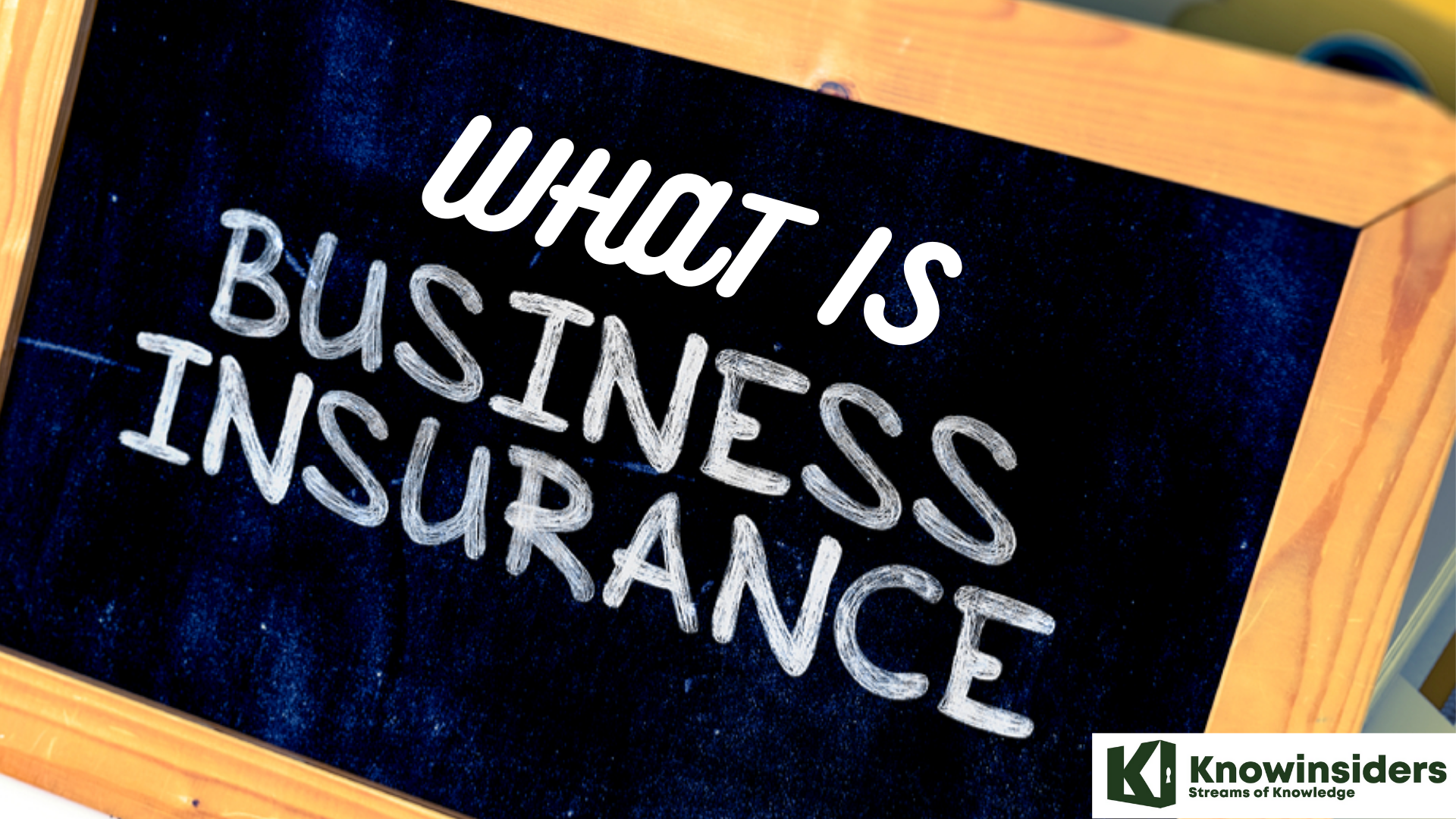 What is Business Insurance: Definition, Types and Cost What is Business Insurance: Definition, Types and Cost Business Insurance is one of the most important parts if you want to start a business, which will help protect your businesses against losses. |


























